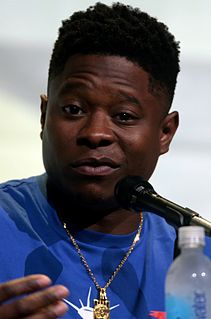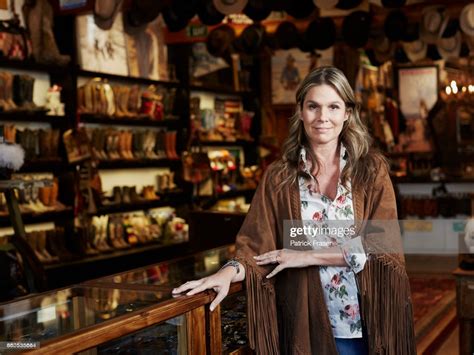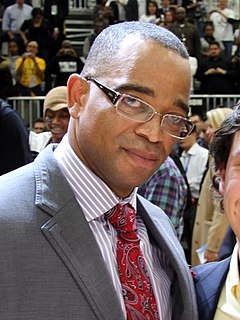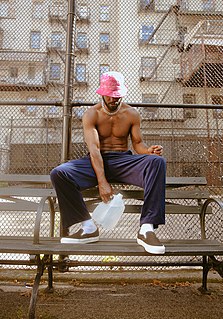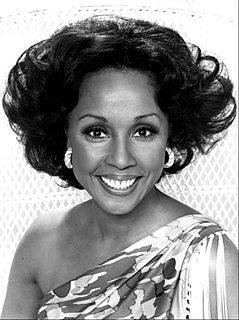A Quote by Jason Mitchell
I'm from New Orleans, Louisiana. It's not a black-and-white type of thing down there. It's a very cultural place. Everybody has the same accent. It's not like if you're white we can't hang with you or anything like that. So it's easy for us to call each other out on our things.
Related Quotes
There is not a history of black intellectuals being allied with dominant forces to hold white people in social and cultural subordination for a few centuries. Second, the "our" of black folk has always been far more inclusive that the "our" of white folk. For instance, there would have hardly been a need for "black" churches if "white" churches had meant their "our" for everybody - and not just white folk. But "our" black churches have always been open to all who would join. The same with white society at every level.
Each of us, helplessly and forever, contains the other - male in female, female in male, white in black, and black in white. We are part of each other. Many of my countrymen appear to find this fact exceedingly inconvenient and even unfair, and so, very often, do I. But none of us can do anything about it.
The snow drifted down and down, all in ghostly silence, and lay thick and unbroken on the ground. It was a place of whites and blacks and greys. White towers and white snow and white statues, black shadows and black trees, the dark grey sky above. A pure world, Sansa thought. I do not belong here. Yet she stepped out all the same.
A lot of my friends were mostly working in black-and-white-people like Lee Friedlander, Diane Arbus, Garry Winogrand, and others. We would exchange prints with each other, and they were always very supportive of what I was doing. What each of us was doing photographically was entirely different, but we were basically coming from the same place, sort of like a club.
We had this terrible thing, this awful thing with 'Black and White' happened, where the design of 'Black and White' was actually... was hijacked by the fan sites. Because what happened is, there were so many fan sites on 'Black and White,' the hype on 'Black and White' was just ridiculously huge. It was completely out of our control.
New Orleans was a thrilling place of all kinds of races, it was a dangerous place. It was really and truly the only international city on the continent of North America. There were all different races and everything was celebrated, and it was a place of difference, and everybody was different and it was so odd, the minute that America took over, the minute that the Louisiana territory became part of the United States of America, instantly you were either black or white. There was no nuance. and so a free man of color who could own property was suddenly not allowed to.
I've never seen a sincere white man, not when it comes to helping black people. Usually things like this are done by white people to benefit themselves. The white man's primary interest is not to elevate the thinking of black people, or to waken black people, or white people either. The white man is interested in the black man only to the extent that the black man is of use to him. The white man's interest is to make money, to exploit.
There's a plethora of genres that I've been introduced to, but that's only because of the foundation that was laid growing up in New Orleans. I know it's a cliche thing to say, but it's very gumbo-like. You get that here. You can mix well with all different walks of life. That's what New Orleans is. It's like no other place.
I suppose our lives need to be more integrated. We have white communities and black communities and white country clubs and black country clubs. It's very important when we integrate ourselves, and it helps us to have a better understanding of the world, to people all over the world and this is the time in history that we have become very aware of how important that is, so I think it's just really-we have to know each other and work together and play together in order to write about each other.
